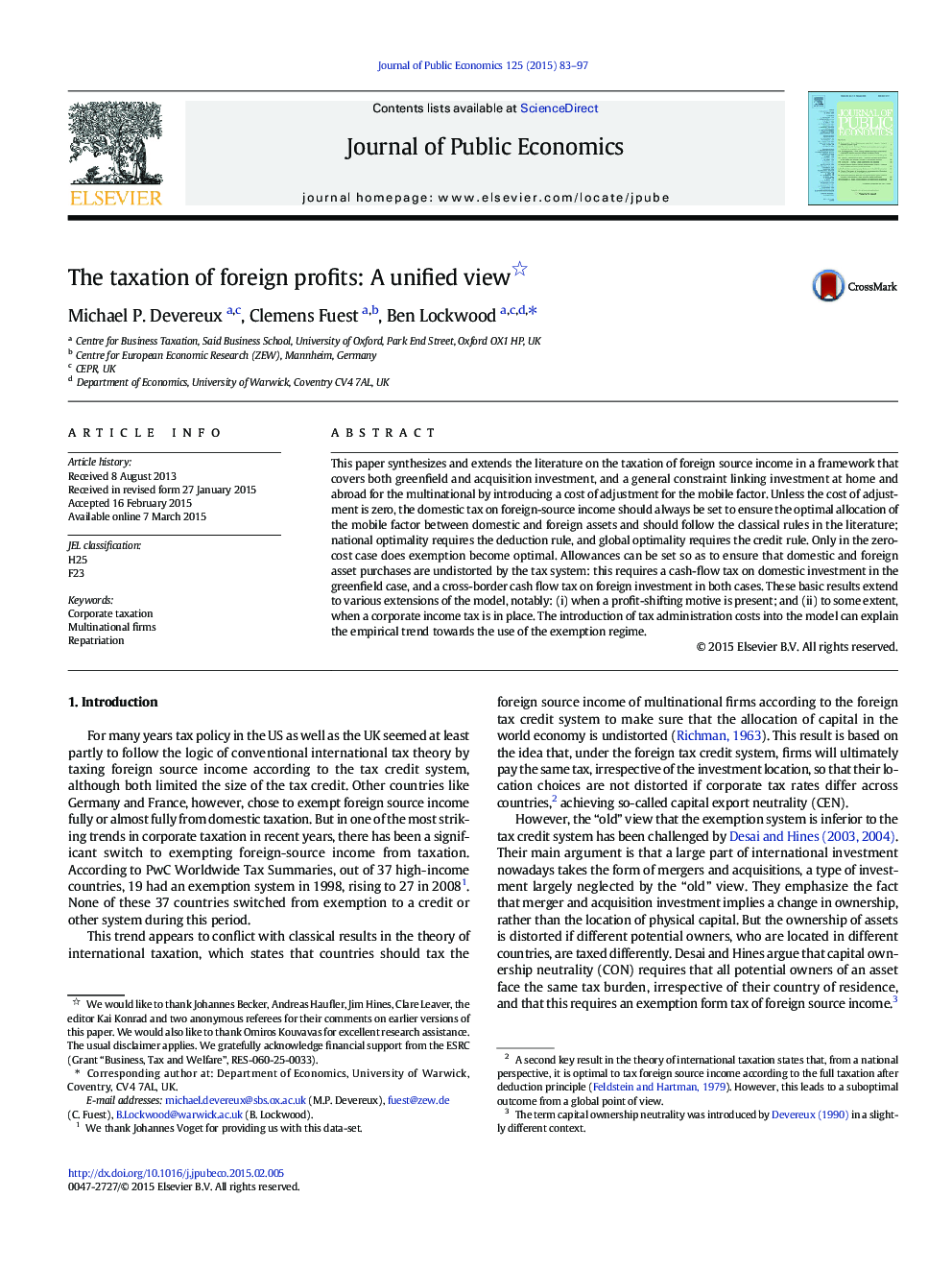| Article ID | Journal | Published Year | Pages | File Type |
|---|---|---|---|---|
| 969058 | Journal of Public Economics | 2015 | 15 Pages |
•We synthesize and extend the literature on the optimal taxation of foreign source income.•We incorporate greenfield and acquisition investment.•The classic rules for deduction or credit for foreign taxes generally apply•A cash flow tax is optimal in both cases.•Only if adjustment costs are zero is exemption optimal.
This paper synthesizes and extends the literature on the taxation of foreign source income in a framework that covers both greenfield and acquisition investment, and a general constraint linking investment at home and abroad for the multinational by introducing a cost of adjustment for the mobile factor. Unless the cost of adjustment is zero, the domestic tax on foreign-source income should always be set to ensure the optimal allocation of the mobile factor between domestic and foreign assets and should follow the classical rules in the literature; national optimality requires the deduction rule, and global optimality requires the credit rule. Only in the zero-cost case does exemption become optimal. Allowances can be set so as to ensure that domestic and foreign asset purchases are undistorted by the tax system: this requires a cash-flow tax on domestic investment in the greenfield case, and a cross-border cash flow tax on foreign investment in both cases. These basic results extend to various extensions of the model, notably: (i) when a profit-shifting motive is present; and (ii) to some extent, when a corporate income tax is in place. The introduction of tax administration costs into the model can explain the empirical trend towards the use of the exemption regime.
